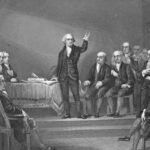During a recent panel at the Israeli American Council national conference, I was asked about my views on the boycott movement. Here is how I responded:
Boycotting is not constitutionally protected as it is considered an economic act, not a matter of free expression. However, advocating for a boycott is protected speech. No one can force a professor to submit a paper to an academic conference at Tel Aviv University, so professors are free to boycott Israeli universities if they choose.
However, problems arise when a professor acts on behalf of their institution. The Boycott, Divestment, and Sanctions (BDS) movement advocates boycotting Israeli universities, which goes against policy at major universities. A professor cannot go against university policy when representing the institution. The BDS movement also suggests boycotting anyone with ties to Israeli universities or who supports actions they deem as violations of international law and human rights.
If a professor publicly pledges to adopt BDS and academic boycotts of Israel, they should not be allowed to hold certain positions within the university. This is not about their ideology, but about their stated actions being inconsistent with their university responsibilities.
It is acceptable for professors to support the BDS movement in their personal capacity, but universities have the right to expect faculty to sign a pledge against discrimination based on national origin, ties to a foreign country, or political views before granting them authority within the institution.
Professors should not refuse to write letters of recommendation for students based on their political views. A compromise could be offering a generic letter of recommendation for the student to use as they see fit.





